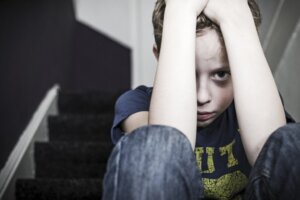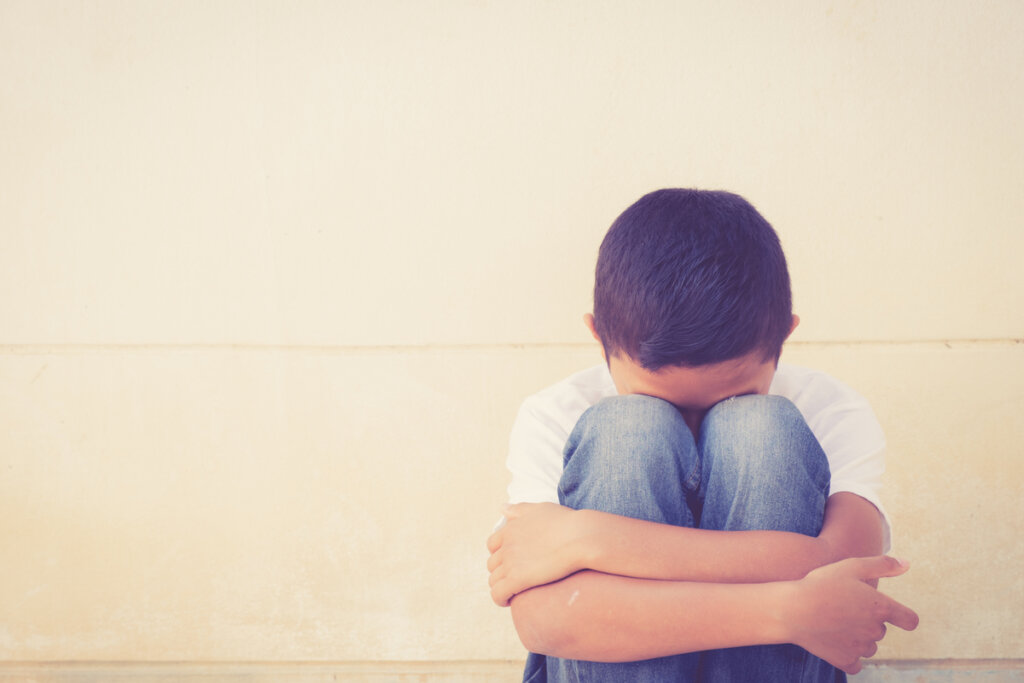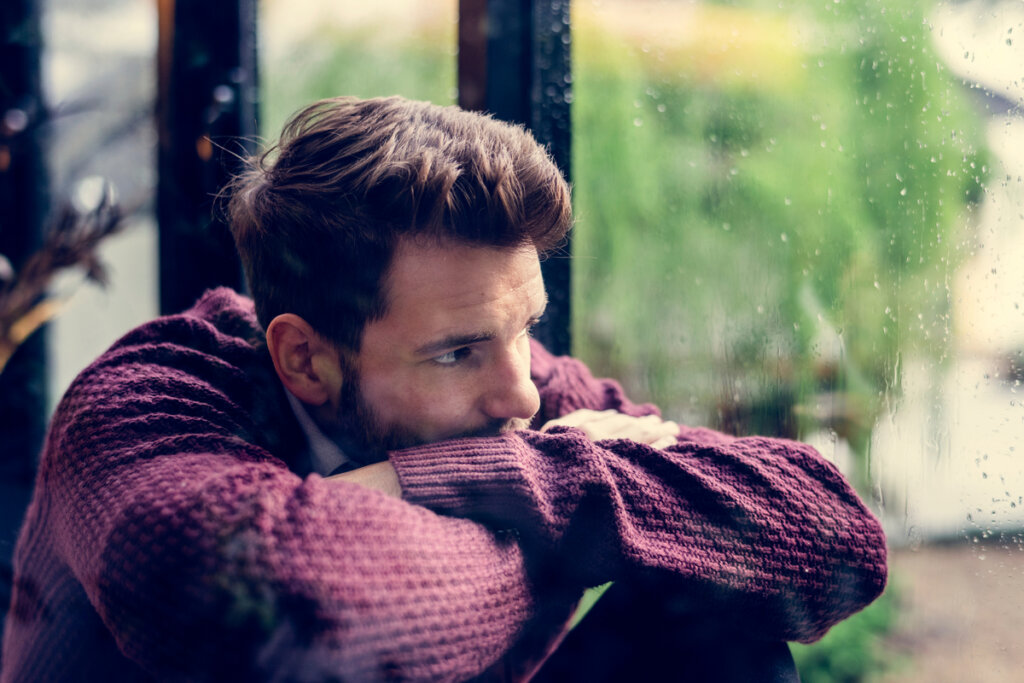Passive Childhood Emotional Neglect: Growing Up Feeling Invisible


Written and verified by the psychologist Valeria Sabater
Is it worse to be ignored or continually criticized? It isn’t easy to answer this question because both realities constitute a clear form of abuse. One example is passive childhood emotional neglect, a type of psychological abuse in which a child grows up assuming that their feelings, thoughts, and needs aren’t important.
This experience has a devastating effect on the psychosocial development of any child. These children are invisible in the eyes of their parents. Their methods of raising their children are based on neglect, plunging the child into a vacuum of affection, poor communication, and the absence of the kind of love that nurtures and educates.
These little ones are broken inside and feel really alone. The simple fact of not having a presence in the emotional and attentional fabric of their parents invalidates them. In fact, few internalized ideas are as harmful to a person as the one that states that whatever they do they won’t be important to anyone.
Emotional neglect can be active or passive. In the first type, there are different types of aggression, such as criticism, devaluation, or manipulation. In the second, there’s simple indifference.

Characteristics of passive emotional neglect
We understand passive emotional neglect as the neglect of a child’s emotional and psychosocial needs. It means the child grows up feeling invisible, assuming that any of their feelings and needs are irrelevant to their parents. Indeed, everything they feel, do, or express goes unnoticed, isn’t validated, and is given no importance.
It’s important to differentiate this type of passive neglect from the active kind. For instance, active emotional neglect occurs when parents criticize their children, nullifying their feelings by indicating that they’re weak because they cry. It’s also common for them to underestimate or ridicule their children for their fears or concerns, labeling them as mere nonsense. In effect, they devalue their children.
On the other hand, in passive emotional neglect, there’s hardly any interaction and a great deal of neglect. The parents are present but emotionally absent. They neither give affection, nor criticize, support, or devalue.
Let’s take a look at more characteristics of this form of abuse.
Children who’ve been raised under the umbrella of passive emotional neglect end up developing low self-esteem and a really critical self-concept toward themselves. They feel fallible and as if there’s something wrong with them because they’ve received no parental attention and validation.
Sadness, tears, fears, and unattended frustrations
Passive emotional neglect is a form of psychological neglect. After all, it’s useless for a father or mother to be present if they don’t comfort their child’s crying. Furthermore, it’s of little use having parents if the child can’t tell them that they’re being bullied at school.
In fact, one thing that these boys and girls soon learn is that their feelings are irrelevant to their parents. As are their problems. Their parents don’t notice their emotions, they pay no attention when they feel frustrated, and they’re totally uninterested in what they’re passionate about. This leaves a residue in the mental substrate, altering the development of their identity, self-esteem, and self-concept.
Parents who apply passive emotional neglect feel uncomfortable whenever their child bursts into tears, is sad, or has a tantrum. In fact, faced with these kinds of reactions, they prefer to ignore them and leave them alone to get over it.
A home defined by poor communication
One of the characteristics of this type of passive emotional neglect is the type of communication in the family. All conversation is superficial, rushed, and empty of content and feelings. There’s never a genuine interest in getting to know the children and what they think or what dreams they have.
Daily life is marked by routines. It’s also defined by the needs of the parents. They’re what really matters and what are usually prioritized.
They have to solve their problems themselves
Parental emotional abandonment has clearly harmful effects on a child’s psychosocial environment. In fact, they learn in early childhood that no one will help them solve their difficulties, no matter how big or small. This lack of emotional support in childhood and adolescence leads them to profound loneliness.
They assume that they must solve all their difficulties and problems themselves. Moreover, they often develop a certain social mistrust. That’s because they presume that no one cares what happens to them and that it’s best to deal with life’s difficulties themselves.

What effects does this type of neglect have in the long term?
The University of Illinois and the University of Ohio conducted some interesting research on physical and emotional neglect, both active and passive. They claimed that, in the long term, there’s usually a risk of developing more than one psychological disorder.
Depression, post-traumatic stress disorder, a tendency to addictions, and risky behaviors. The impact of these dynamics experienced in childhood and adolescence is severe and persistent. It alters the way the sufferer sees themselves. They often hide their feelings and repress their emotions by assuming that everything they feel isn’t important.
Few realities can be more damaging to human beings than growing up under conditions of emotional abandonment and detachment from their parents. In fact, it’s then that the psychological supports that allow children to create a positive and valid image of themselves are damaged.
For this reason, it’s extremely common that when sufferers reach adulthood, they become fully aware that there’s something wrong with them. Indeed, being victims of a distorted upbringing in which no one gave them a presence or validated their needs and emotions, has severe consequences.
These are internal injuries that must be treated by specialized professionals. Sufferers mustn’t hesitate in asking for help to repair the fabric of their life and their self.
All cited sources were thoroughly reviewed by our team to ensure their quality, reliability, currency, and validity. The bibliography of this article was considered reliable and of academic or scientific accuracy.
- Cohen JR, Menon SV, Shorey RC, Le VD, Temple JR. The distal consequences of physical and emotional neglect in emerging adults: A person-centered, multi-wave, longitudinal study. Child Abuse Negl. 2017 Jan;63:151-161. doi: 10.1016/j.chiabu.2016.11.030. Epub 2016 Dec 4. PMID: 27923183; PMCID: PMC5282706.
- Müller LE, Bertsch K, Bülau K, Herpertz SC, Buchheim A. Emotional neglect in childhood shapes social dysfunctioning in adults by influencing the oxytocin and the attachment system: Results from a population-based study. Int J Psychophysiol. 2019 Feb;136:73-80. doi: 10.1016/j.ijpsycho.2018.05.011. Epub 2018 Jun 1. PMID: 29859994.
- Kumari V. Emotional abuse and neglect: time to focus on prevention and mental health consequences. Br J Psychiatry. 2020 Nov;217(5):597-599. doi: 10.1192/bjp.2020.154. PMID: 32892766; PMCID: PMC7589986.
This text is provided for informational purposes only and does not replace consultation with a professional. If in doubt, consult your specialist.








